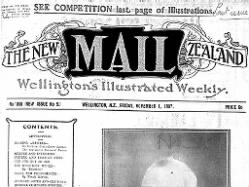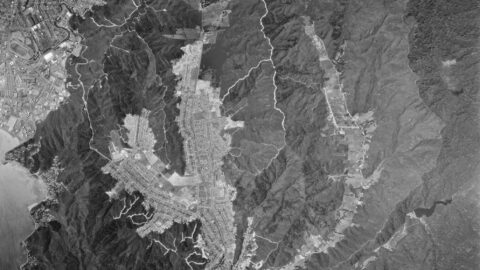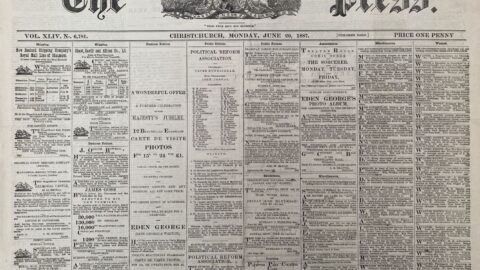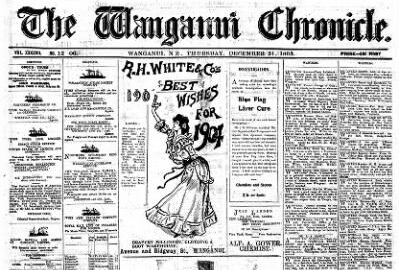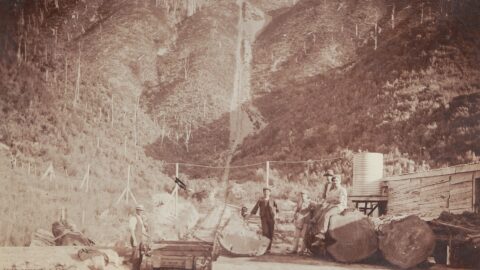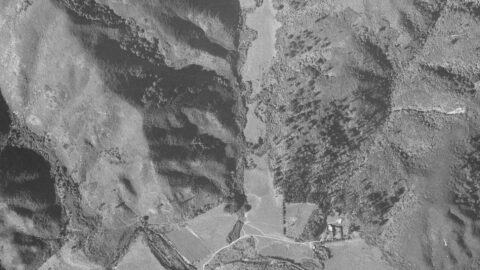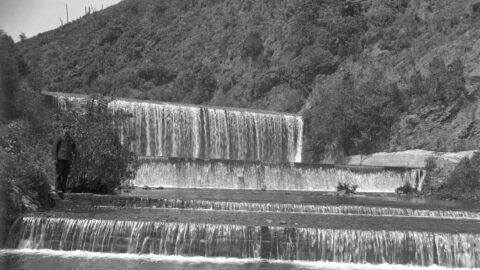**SUPREME COURT**
**CIVIL SESSIONS**
**DISPUTE OVER A FIREWOOD CONTRACT**
**A HUTT VALLEY CASE**
**CLAIM FOR £7000**
His Honor Mr. Justice Cooper and a special jury of twelve, of which Mr. W. Hopkirk was chosen foreman, are presently hearing the civil action in which Timothy Quinlan and John Alfred Foster, both of Naenae, Hutt Valley, contractors, are the plaintiffs, and William Edwin Redstone, estate agent, of Wellington, and Alexander Gray, solicitor, of Wellington (who were sued on behalf of themselves and several other persons, together known as the Naenae Syndicate, and who are also the beneficial owners of the lands with which the action had to do). Mr. Levi appeared for the plaintiffs, Mr. Skerrett for the defendant syndicate, and Messrs. H. D. Bell and Stafford for the third party to the suit, Messrs. Strand Bros., timber merchants, carrying on business at Lower Hutt.
—
**THE PLAINTIFFS’ CASE**
The statement of claim set out that on August 6th, 1905, plaintiffs entered into an agreement in writing with William Edwin Redstone and Alexander Gray, who represented the Naenae Syndicate, the beneficial owners of the lands described in the agreement providing for the cutting and delivering of firewood by the plaintiffs. The rata and manuka timber suitable for firewood on these lands were situated in patches of bush on different portions of the property.
After making the agreement, the plaintiffs cut and split quantities of timber into firewood. The Naenae Syndicate built a wooden tramway which ran up a gully to bring down timber and firewood from some of the patches of bush. The plaintiffs said they had delivered firewood cut and split by them and had been paid by the syndicate a portion of the money that was due to them.
Some time after entering into the agreement, the syndicate granted to Strand Brothers, without the concurrence or consent of the plaintiffs, a license to construct a tramway and machinery plant on the land to run trucks over the tramway for the purpose of conveying milling timber across the land in question. This tram line has been constructed, and it runs for part of its length down a steep ridge, then down a gully to a timber mill which Strand Bros. are now erecting near the land in question.
The ridge upon which this tramway has been constructed is between two gullies, which converge at the foot of the ridge into the gully, down which the tramway is continued. Plaintiffs claim that these gullies are the only practicable places where they can construct tramways and chutes for bringing down timber and firewood under the provisions of their agreement from some of the patches of bush on the heights, which contain large quantities of manuka and rata timber extremely suitable for firewood.
Plaintiffs said Strand Bros. proposed shortly to commence running on the tramway trucks laden with heavy timber logs, which would render it impossible for plaintiffs to construct and work the tramway plant and machinery necessary for cutting and delivering firewood. The plaintiffs had asked that this tramway line be removed, or that Strand Bros. should not be allowed to use it as proposed, but these requests had not been granted.
Consequently, the plaintiffs had been prevented from carrying out the operations under the contract. They had suffered loss and damage by the breach of contract on the part of the syndicate, such loss being the loss of profits on the contract, the value of the work completed or partly completed, under the agreement and not paid for, and expenditure on works and plant rendered fruitless. Plaintiffs claimed £7000 damages.
—
**THE DEFENCE**
The defendants, William Edwin Redstone and Alexander Gray, in their statement of defence, traversed the claims of the plaintiffs. They denied that plaintiffs had cut and split timber into firewood in accordance with the terms of the agreement. They admitted the construction of a tramway but denied that it was built to bring down timber and firewood from the patches of bush on the land.
The defendants maintained that the tramway had been constructed at their own cost, but at the express request of the plaintiffs to enable them to bring timber and firewood through the gully under the agreement. They admitted that plaintiffs had brought down firewood, but claimed much of it was not cut and split in accordance with the agreement.
It was also stated that the syndicate had paid the plaintiffs more than they were entitled to for the firewood delivered. While admitting that Strand Bros. had constructed a tramway, the defendants denied granting Strand Bros. a license to construct the tramway for conveying milling timber across the land without the plaintiffs’ consent.
The defendants also denied that the running of trucks with timber logs on this line rendered it impossible for plaintiffs to construct and work any tramway plant and machinery reasonably necessary for cutting and delivering firewood from the bush patches. They further denied that the syndicate’s actions prevented the plaintiffs from continuing their operations under the contract or that they had suffered loss or damage by any breach of contract.
Defendants claimed the plaintiffs wrongfully abandoned the contract. They also alleged that there were large quantities of firewood on the land, other than the patches of rata and manuka, which plaintiffs could have cut and delivered. The defendants argued that the construction of Strand Bros.’ tramway had not interfered with plaintiffs’ ability to fulfill their contract.
—
The remaining parts of the case detail the defense’s legal arguments and the outcome of the case, in which nonsuit points were raised, ultimately resulting in the case’s dismissal. The final verdict and costs were awarded in favor of the defendants.
—








